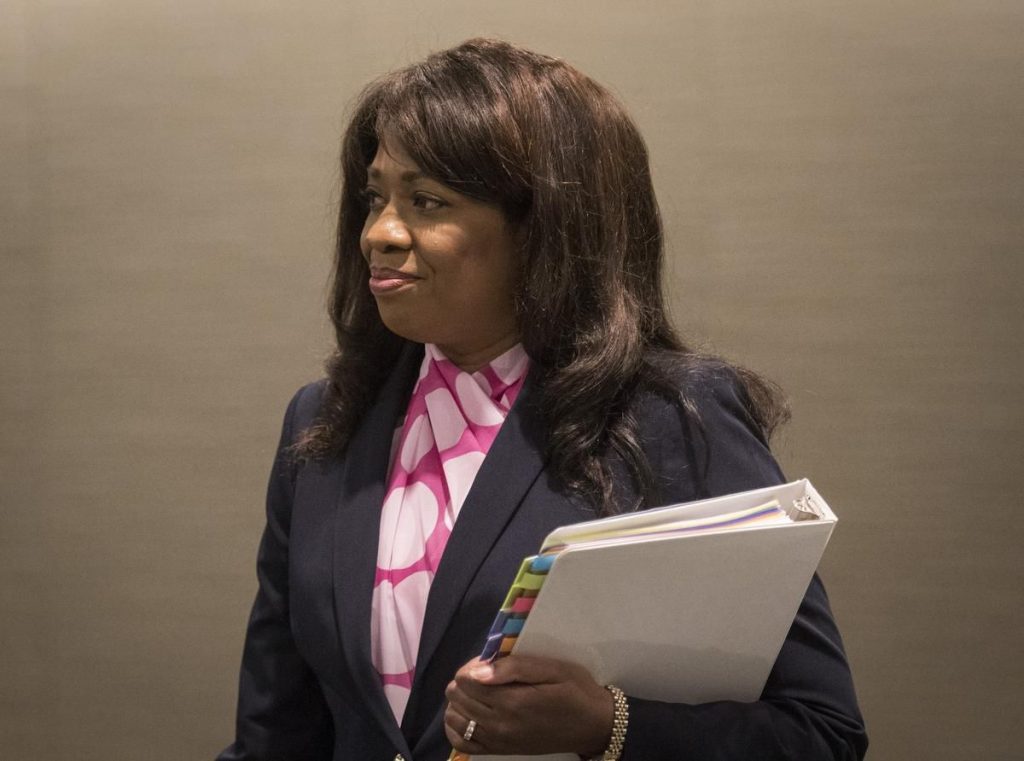Blog Post
Leslyn Lewis’s leadership campaign proved that a pro-life platform can win
The analyses of the recent Conservative leadership race continue to arrive, and I want to direct your attention to two particularly insightful autopsies of the campaign. In the Washington Post, my friend J.J. McCullough laid out why Leslyn Lewis’s runaway candidacy highlighted why abortion—and the pro-life movement—are a potent force in Canadian politics:
More importantly, making the Lewis story all about race and gender, or some other abstract “appeal,” prevents another, probably more accurate storyline from emerging: that it was all about abortion.
Though Lewis is often euphemistically referred to as a “social conservative,” her main cause was abortion. After getting pregnant during law school, Lewis claims she faced “immense social pressures” to abort, and in resisting, came to appreciate the importance of the issue. Popular in the pro-life activist community, her threadbare campaign piggybacked on the infrastructure of Canadian antiabortion groups such as RightNow, the Campaign Life Coalition and the Canadian Centre for Bio-Ethical Reform, which provided her with strategists and manpower. Lewis solicited help on devising a pro-life platform with broad voter appeal, and accordingly campaigned on “four specific pro-life policies” that activists often argue most resemble Canadian mainstream opinion: bans on coerced and sex-selective abortions, more funding for pregnancy care, and no funding for abortions abroad.
The activists were delighted. Lewis proves “you can easily have a successful pro-life candidate, even one who is unknown to the majority, with messaging that resonates and appeals to the average voter,” Alissa Golob, co-founder of RightNow, told me.
In his first days as party leader, O’Toole has expressed nothing but warmth and support for Lewis, and Lewis has announced her intention to run for Parliament under his leadership. This is standard magnanimity, but it also makes the Conservative Party’s status as an awkward coalition of abortion supporters and foes quite explicit. O’Toole is the first Conservative leader to explicitly proclaim himself “pro-choice.” Yet he has linked arms with a woman who is now Canada’s most famous pro-life politician — as he had to, given her popularity.
Pundits have already framed this as a problem, since the Canadian media insist on framing abortion as a “closed debate” with no business in the country’s political discourse. The sophisticated antiabortion networks that made Lewis an overnight political celebrity, however, stand as proof that — despite decades of insistence to the contrary — abortion remains a powerful rallying force in Canadian politics.
Pro-choicers in all parties should take this as an opportunity to reflect on Canada’s abortion status quo — almost entirely unregulated and among the most permissive on Earth — and ponder if there perhaps exists any valid reason this divisive debate refuses to go away.
McCullough is precisely right, and I would take it a step further: By laying out a pro-life platform with broadly popular appeal, Lewis denied the Liberal strategists who like to talk about the so-con boogeyman the ability to paint her as controversial. Opposition to sex-selection abortion, for example, is “controversial” to less than ten percent of the population, and is only referred to in those terms because the media works hand-in-glove with the Liberals to ensure that a discussion about the extremity of Canada’s abortion regime never takes place. Lewis, like Pierre Lemieux during the previous Conservative leadership race, proved that social conservative policies with majority support do not have to be a “stinking albatross,” in the memorable words of the spurned Peter MacKay.
Which brings me to the second analysis of the race that every pro-lifer should read. Scott Hayward, the numbers wonk over at the political pro-life organization Right Now, wrote a long essay (packed with graphics and interesting data) on what pro-lifers can learn from the leadership race:
Pro-lifers were able to fuel a candidate from relative obscurity in early January, to perhaps being on the final ballot in early March, to earning more donors, almost as many donations, the highest number of votes, and almost the same amount of points as the winner, in the candidacy of Leslyn Lewis.
While Andrew Scheer owed his leadership election victory to a few key movements with in the Conservative Party, the Erin O’Toole campaign owes their victory solely to pro-lifers voting for O’Toole down ballot. Andrew had a mixture of dairy farmers in Quebec, first place votes of Erin O’Toole, and pro-lifers from down-ballot votes that helped him catapult past Maxime Bernier on the final ballot in the 2017 leadership race. Andrew could not have won without any of those groups, but it was not just one group that did it alone. For Erin, that is not the case. If Peter MacKay had developed a deep and sustained respect for pro-lifers and pro-life policies and campaigned as such, he would be Leader of Her Majesty’s Loyal Opposition today.
Read the whole thing—Hayward lays out what pro-lifers could have done to propel Leslyn Lewis over the finish line, and how next time, so-cons can crown the queen instead of playing the role of kingmaker.









I have to quibble here – Leslyn Lewis didn’t prove a pro life platform can win a federal election. She showed that a pro life platform can almost win a Conservative leadership election. There’s a wide gulf there!
She also proved that putting forward a platform with a broad base of support across the country meant that you have easily defencible positions. Her responses to mainstream media questions on so-con issues were brilliant.